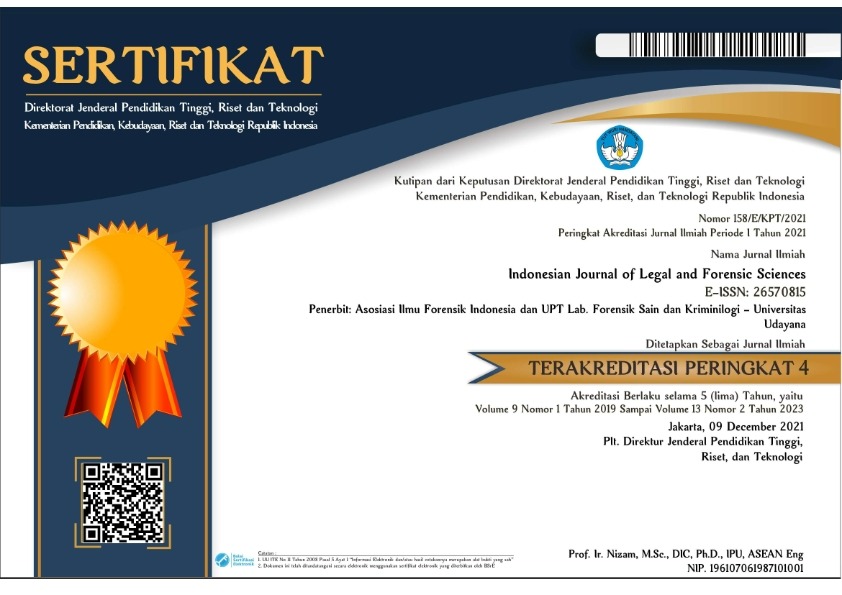MUTATION OF STR IN PATERNITY TESTING
Abstract
Since the founding of DNA fingerprint by Alec J Jeffreys in 1985, DNA analysis was widely appliedin paternity testing. Nowadays, Short Tandem Repeats (STR) is the most popular DNA typing for paternitytesting because of its high discrimination power, especially when the typing is performed in combination of 6,9, 13 or 15 STR loci. STR is the nuclear DNA, and inherited from the mother and father according toMendelian law. Every child has a pair of DNA fragment, one inherited from the mother (maternal fragment),and the other from the father (paternal fragment). In paternity testing we compare the DNA typing of the childand mother to find the maternal fragment. The other fragment of the child must be the paternal fragment. Thispaternal fragment of the child, then is compared to the fragments of alleged father. The result of thiscomparison is either match (the paternal fragment is the same as one of the alleged father’s DNA fragments)or exclusion (the paternal fragment is not the same with any of the alleged father’s fragments). A child IS thebiological child of alleged father if in every STR locus the comparison is match. A child IS NOT thebiological child of alleged father if in 2 or more STR loci the comparisons are exclusion. Single exclusion in apaternity testing, that still be a single exclusion after additional STR loci analysis is usually caused bymutation. Mutation on STR locus will causes the repeat of a person shift one step more or less than theoriginal. In the case of mutation, the paternity index will decrease although we still confirm that the allegedfather is the biological father of the child. In this paper we report 2 paternity cases that showed mutation inSTR typing.Downloads
Download data is not yet available.
How to Cite
SURYA ATMADJA, Djaja; UNTORO, Evi.
MUTATION OF STR IN PATERNITY TESTING.
Indonesian Journal of Legal and Forensic Sciences (IJLFS), [S.l.], v. 1, jan. 2008.
ISSN 2657-0815.
Available at: <https://ojs.unud.ac.id/index.php/ijlfs/article/view/3241>. Date accessed: 02 mar. 2026.
doi: https://doi.org/10.24843/10.24843/IJLFS.2008.v01.i01.p05.
Section
Articles
Keywords
paternity testing – DNA – STR - mutation


















